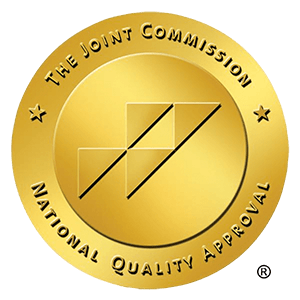TMS Therapy for Depression
The FDA approved transcranial magnetic stimulation (TMS) in 2008 to treat major depression. Over the past two decades, TMS treatments have helped thousands of individuals struggling with depression achieve relief and remission from depression.
TMS has served as a lifeline for individuals who:
- Have struggled with depression;
- Have tried oral antidepressants that have not been successful, either because the medication did not relieve their symptoms, or because they experienced significant negative side effects from medication;
- Are reluctant to pursue invasive procedures like electroconvulsive / electroshock therapy (ECT), which require anesthesia and can have severe side effects;
- Are looking for treatments that are evidence-based, FDA-approved, and have less side effects than other treatment alternatives;
- Are seeking a treatment option that is affordable because it is covered by their insurance.

Understanding TMS Therapy
TMS works by providing electromagnetic pulses to the dorsolateral prefrontal cortex (DL-PFC), which is the area of the brain that is directly associated with mood regulation, motivation, decision-making, memory, and cognition. Brain imaging reveals that the DL-PFC is weaker in individuals who suffer from depression than individuals who do not have depression. The magnetic pulses delivered by TMS treatments causes the brain to create new connections with deeper parts of the brain, changing the deep limbic system and improving the brain’s ability to regulate mood, emotion, motivation, and other aspects of cognition.
TMS treatments are short procedures—with each treatment session lasting approximately 20 to 30 minutes. Typically, patients receive 36 treatment sessions over the course of 7 weeks. During their treatments, they sit comfortably in a chair and can choose to spend that time reading, listening to music, or talking to their Treater (the person performing their treatment sessions).
Because TMS is a non-invasive procedure, individuals are able to drive themselves to their daily appointments, and when the appointment is completed, drive themselves home.
TMS at Core Recovery
Core Recovery offers TMS treatment to patients in the greater Phoenix area. Core Recovery can offer TMS therapy, either as a standalone treatment or as an integrated part of its IOP & PHP programming.
TMS Therapy as Part of Core’s Integrated Programming
Core Recovery offers intensive outpatient (IOP) and partial hospitalization (PHP) programming for individuals struggling with mental health issues, including depression. The cornerstone of these programs is that they offer a range of multi-faceted, integrated care that focuses on treating the whole person. Commonly, patients in these programs receive a combination of individual therapy, group therapy, family therapy, psychiatric medication management, and creative expression therapy, among others.
Patients in Core Recovery’s IOP & PHP programming may also benefit from TMS therapy. During your psychiatric intake appointment and during your first treatment sessions, you and your provider can discuss whether TMS therapy is an appropriate part of your personalized treatment plan.
When TMS is combined with therapy, the benefits can be greater than either in isolation (i.e., the whole is greater than the sum of its parts). Studies indicate that TMS is most effective when TMS is performed simultaneous to psychotherapy, because they produce synergistic antidepressant outcomes.
TMS Therapy as a Standalone Treatment
Some patients face a challenging dilemma: they know that they require more intensive mental health care than weekly therapy or prescription medications, but they lack the ability to invest the time in IOP/PHP programming that lasts between 3 and 5 hours per day, for 3 to 5 days per week.
TMS offers a potential alternative for individuals in this situation. TMS treatment sessions generally take less than 30 minutes each, and individuals undergoing the treatment often begin experiencing relief as early as the second week of treatment.
Everyone’s circumstances are unique. The question of whether TMS is more suitable as an alternative to IOP/PHP programming, or as a complement to intensive programming, is one that best assessed in consultation with one of our psychiatric providers.

Contact Us Today
If you or someone you love is struggling with depression, TMS may be able to help. Contact us today to learn more.



